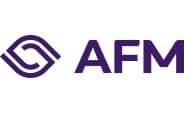
AFM examines quality of order execution on PFOF trading venues
The Dutch Authority for the Financial Markets (AFM) has developed a method that provides better insight into the impact of payment for order flow (PFOF) services provided by brokers. The study has shown that the examined PFOF venues consistently produce worse execution prices for retail clients. PFOF is prohibited in the Netherlands and ESMA recently warned about the risks it poses.
In brief
- Analysis shows PFOF venues produce worse execution prices
- ESMA already warned about risks last summer
- PFOF is prohibited in the Netherlands
With PFOF, a trading venue or market maker pays a fee to a broker to obtain the exclusive right to execute the orders of the broker’s clients. The idea is that this should lower brokers’ costs and hence also their clients’ costs.
Initial analysis points to consistently worse execution prices
The analysis method applied in the study relies on transaction data, and the AFM performed an initial analysis of two PFOF trading venues and one non-PFOF trading venue. All three trading venues are used by low-cost neobrokers operating in multiple European countries. The study shows that the execution prices that a retail investor receives or pays for trading on a PFOF venues are consistently worse. The findings have been included in this paper.
ESMA already warned about risks of PFOF last summer
Last summer, the European Securities and Markets Authority (ESMA) warned European brokers and investors about the risks posed by PFOF, a trading method frequently used by newcomers on the broker market. PFOF inappropriately incentivises investment firms to select the party offering the highest payment, rather than the party offering the best possible outcome for clients in executing orders.
PFOF is prohibited in the Netherlands
The AFM believes PFOF is an undesirable trading model, as it gives rise to a lack of cost transparency towards investors and breaches the principle of open and competitive markets. PFOF is prohibited in the Netherlands. The AFM has been advocating an EU-wide ban for some time. It ensures a level playing field and prevents brokers established in another EU member state to service Dutch investors using PFOF.
The AFM has shared the analysis method with other EU supervisory authorities. This can contribute to the development of a uniform EU approach to gain a better picture of the quality of order execution on trading venues.
Update paper 21 March 2022
In response to version 1 (January 2022) of the paper, the AFM received from some parties the feedback that a comparison of the transactions on the PFOF trading venues with order data (best bid and best offer) might yield different results. Therefore, in the March 2022 update of this paper, the AFM added an analysis where we use order data to assess the quality of execution. The AFM looked at the available price on the most liquid trading venue at the millisecond when a transaction was executed.
The results are very similar to the results obtained via the Comparative Pricing Model, which only uses post-trade data.
PFOF venues structurally underperform compared to both the quoted prices as well as actual execution prices. This confirms that the Comparative Pricing Model by itself functions as a robust indicator of a trading venue’s or investment firm’s execution quality.
Contact for this article

Would you like to receive the latest news from AFM?
Subscribe to our newsletter, we will keep you up-to-date.